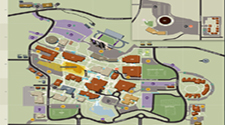Inquiry & Exploration Learning
What is Inquiry & Exploration Learning (IEL)?
Inquiry & Exploration Learning (IEL) uses different approaches to learning, including small-group discussion and guided learning. Rather than focusing on memorizing facts, teachers use questions, problems, and scenarios to help students learn by doing. This allows students to build knowledge through exploration, experience and discussion.
How do IEL courses operate?
IEL classes meet for four or five hours a week in a regular classroom with an instructor. Students work in groups to explore problems presented in the workbook or by the teacher. Students discuss and share their ideas in their groups with the class. Homework is completed outside of class and may include an online assignment and/or workbook problems not completed in class. All quizzes and tests are compleed electronically and tests must be taken in the testing center.
How do I know IEL math is for me?
You should consider this type of class if you...
- want to learn how math can be used in your own life
- want to know the "why" behind the math procedures
- have typically struggled to learn math
Which classes are taught using the IEL format?
- Math 0950
- Math 0970
- Math 1010
What materials do I need for the IEL class?
Your class will use a worktext and an online homework system. When you register for a class you pay a materials fee that gives you automatic access to the software. You will be able to access the software on the first day of the semester.
Where can I get help for my IEL class?
Students in Developmental Math classes are always welcome to get free tutoring help in the Math Tutoring Center. Tutors are always available to answer any questions regarding homework and previously taken quizzes/tests. It is also encouraged for students to reach out to their instructors for help.
What do other students say about IEL courses?
"The math concepts were taught in a way that I was able to apply them to everyday problems."
"I felt that being able to work in groups made learning easier and more interesting."
"I liked how the instructor would introduce a concept to us, and then he would let us work in groups to fully understand what was going on. It was very useful because we would be able to teach others while teaching ourselves."
Main Office
Tracy Hall Science Center (TY) 207
801-626-7585
Monday - Friday
8:00 a.m. - 4:00 p.m.
Mailing address
Weber State University
Developmental Mathematics
1415 Edvalson St., Dept. 2516
Ogden, UT 84408-2516

